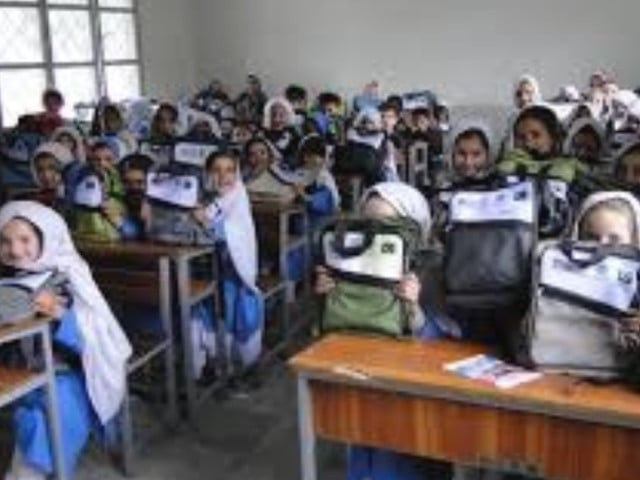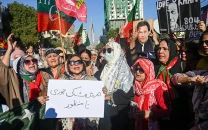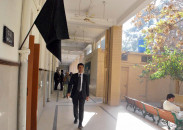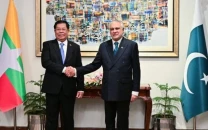Privatisation gamble risks future of students
Critics believe the state is running from its responsibility

The Khyber Pakhtunkhwa (K-P) government, led by Pakistan Tehreek-e-Insaf (PTI) in its third consecutive term, has declared an "education emergency" in the province. However, despite these claims, the government is moving ahead with an aggressive outsourcing plan for public education institutions both at the school and college levels.
Official documents available with The Express Tribune have revealed that more than 4,000 government schools have already been handed over to private operators while preparations have been completed to outsource 55 public sector colleges in the first phase of a similar initiative. The move has sparked sharp criticism from teachers' associations, who accuse the government of abandoning its responsibility towards public education.
According to the Elementary and Secondary Education Department's records, 4,147 schools across K-P have been outsourced under various models. Among them, 2,313 are girls' schools and 1,834 are boys' schools. The outsourcing efforts cover multiple districts, with Bannu at the top of the list with 416 schools; 280 for girls and 136 for boys. Mansehra follows with 480 schools; 218 for girls and 198 for boys. Conversely, Abbotabbad has 374 schools up for privatization, Haripur has 202, Peshawar has 64, Mardan 83, and Charsadda is outsourcing 67 schools.
After completing this large-scale shift in the school sector, the government is now extending the model to the higher education sector. Documents from the Higher Education Department, obtained by The Express Tribune, have revealed that 55 colleges have been identified for outsourcing in the initial stage. Dera Ismail Khan tops the list with seven colleges, followed by Swabi with six. South Waziristan will see five colleges outsourced, Orakzai three, and Abbotabbad two, with others spread across different districts.
The plan has faced immediate backlash from teachers and education stakeholders. Speaking to The Express Tribune, the provincial president of the All Primary School Teachers Association Aziz Ullah Khan condemned the decision, alleging that the government was trying to "cover up its failures" through privatization.
"In every developed country, education is considered a core responsibility of the state. Investment in education is an investment in a nation's future. Unfortunately, this government has no clear priorities for improving the system. Instead, their focus seems to be on political protests for their party founder rather than ensuring quality education," said Khan.
Khan warned that teachers' unions across K-P would launch protests and demonstrations to block the move. "This government had promised to regularize teachers and provide them with benefits. Instead, our protests have been met with tear gas and baton charges. Now, they are trying to take away what little is left of state-run education," he added.
In response to the backlash, K-P Minister for Elementary and Secondary Education Faisal Khan Taraki defended the outsourcing plan, calling it a reform-oriented decision. "The aim is to improve the quality of education through better management. All tuition fees and related expenses for students in these outsourced institutions will be covered by the government. Parents will not face any additional burden," claimed Taraki.
Tarakai further asserted that the government was committed to raising education standards across the province. "We are introducing measures that will bring efficiency into the system by utilizing private sector expertise. This is the beginning of reforms that will ultimately benefit students and strengthen the education sector in K-P," he added.
Unsurprisingly, the provincial government's outsourcing strategy comes at a time when public education faces severe challenges, including a shortage of qualified teachers, poor infrastructure, and high dropout rates. Whether this controversial move will lead to improvement or further weaken the already fragile public education system remains to be seen.



















COMMENTS
Comments are moderated and generally will be posted if they are on-topic and not abusive.
For more information, please see our Comments FAQ